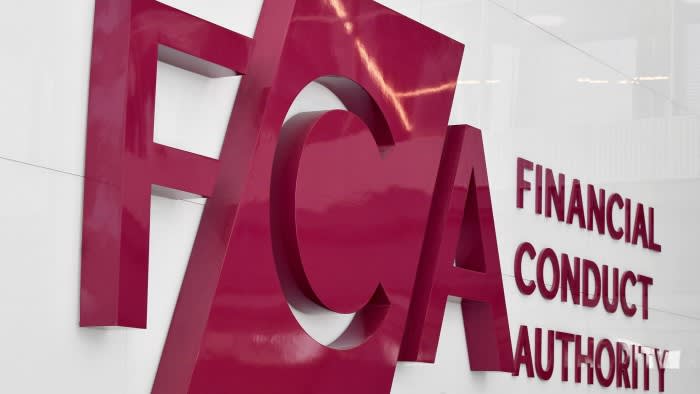Unlock the Editor’s Digest for free
Roula Khalaf, Editor of the FT, selects her favourite stories in this weekly newsletter.
The chair of the UK’s financial watchdog has been accused of breaching the confidentiality of an internal whistleblower who wrote to him asking for help, violating the code of conduct he presides over.
Ashley Alder, chair of the Financial Conduct Authority, forwarded on correspondence in December and March with the complainant’s name, address and concerns unredacted, according to emails.
The FCA’s whistleblowing policy states: “Your identity will not be revealed without your consent.”
The whistleblower was dismissed from the regulator in 2021 for alleged misconduct, and also lost an employment tribunal case against the authority, a decision they are appealing against. However, their concerns over alleged opaque hiring practices that were detailed to Alder prompted an internal review.
The FCA has also launched a second internal audit in response to the whistleblower’s correspondence, which will scrutinise the watchdog’s process for deciding whether allegations of misconduct should be formally internally investigated.
The regulator has already drawn criticism over its handling of whistleblowers. Last year, the Information Commissioner’s Office ruled that the FCA had breached its data protection obligations. The Times reported that the case involved the FCA allegedly intercepting and diverting staff correspondence, including confidential whistleblowing emails, to keep track of people it considered a nuisance.
In a separate case in 2018, the Financial Regulators Complaints Commissioner slammed the FCA for revealing the identity of a Royal Bank of Scotland whistleblower to the bank, though the FCA said then that the claims against the bank now known as NatWest “proved to be groundless”.
The FCA requires regulated firms to have internal policies on lodging complaints that promise confidentiality, and to report annually on how well they work. Barclays’ former chief executive, Jes Staley, was fined over £600,000 by the FCA and Bank of England in 2018 after trying to uncover the identity of an anonymous whistleblower.
Despite these stringent rules for the firms the FCA oversees, Alder forwarded the individual’s unredacted emails to two other people within the FCA, and referenced a third who “briefed” others on the matter, according to the emails seen by Banking Risk & Regulation, a service from FT Specialist.
The FCA’s policy promises: “We will do all we can to keep your identity secret . . . If it is necessary for anyone other than the original recipient of your disclosure to be aware of your identity we will discuss this with you before your identity is disclosed.”
The ex-employee had raised concerns via a dedicated hotline in October. They then wrote to Alder and to FCA whistleblowing champion Liam Coleman in December, after the whistleblower felt that their concerns had only partially been acted on.
Alder did not reply to them, nor flag that he might disseminate the information to other people, according to the whistleblower. Coleman did reply in detailed correspondence with the complainant.
The whistleblower’s emails were marked “PRIVATE — FOR THE ADDRESSEE ONLY” and pointed to the FCA’s policies, asking for anonymity even from Alder’s private secretary, the individual said.
The FCA declined to comment on whether the staff who had sight of the emails beyond Alder and Coleman were part of the official team handling whistleblowing complaints.
The whistleblower said that they were left “angry, stunned and speechless” when they saw the forwarded emails and called it “institutional betrayal”, accusing the FCA of “incompetence and incapability”.
FCA employees are required to complete annual mandatory whistleblowing training, though “it appears this requirement isn’t applicable to the FCA chair”, the whistleblower said.
“What this case really demonstrates is that the FCA hasn’t got its own house in order and therefore it casts serious doubt over whether it’s able to lead and deliver its duties as a regulator to those it regulates,” said Georgina Halford-Hall, chief executive of WhistleblowersUK, who called on Alder to “fall on his own sword”.
The not-for-profit group has championed a Whistleblowing Bill that aims to introduce an independent watchdog to set standards and investigate breaches.
Alder did not respond to requests for comment made through the FCA press office.
A statement for the FCA and its chair read: “This is an exceptional case. A former employee raised multiple concerns in different ways, including through an internal complaint and at an employment tribunal. The senior independent director of the FCA’s board will review how it was handled.”
An ICO spokesperson said: “Legal protections are in place to ensure whistleblowers are able to freely raise certain types of wrongdoing.
“Anyone who has concerns about how their information has been handled after making a disclosure of this nature can bring their concern to us.”
Ellesheva Kissin is a reporter at Banking Risk and Regulation, a service from FT Specialist















